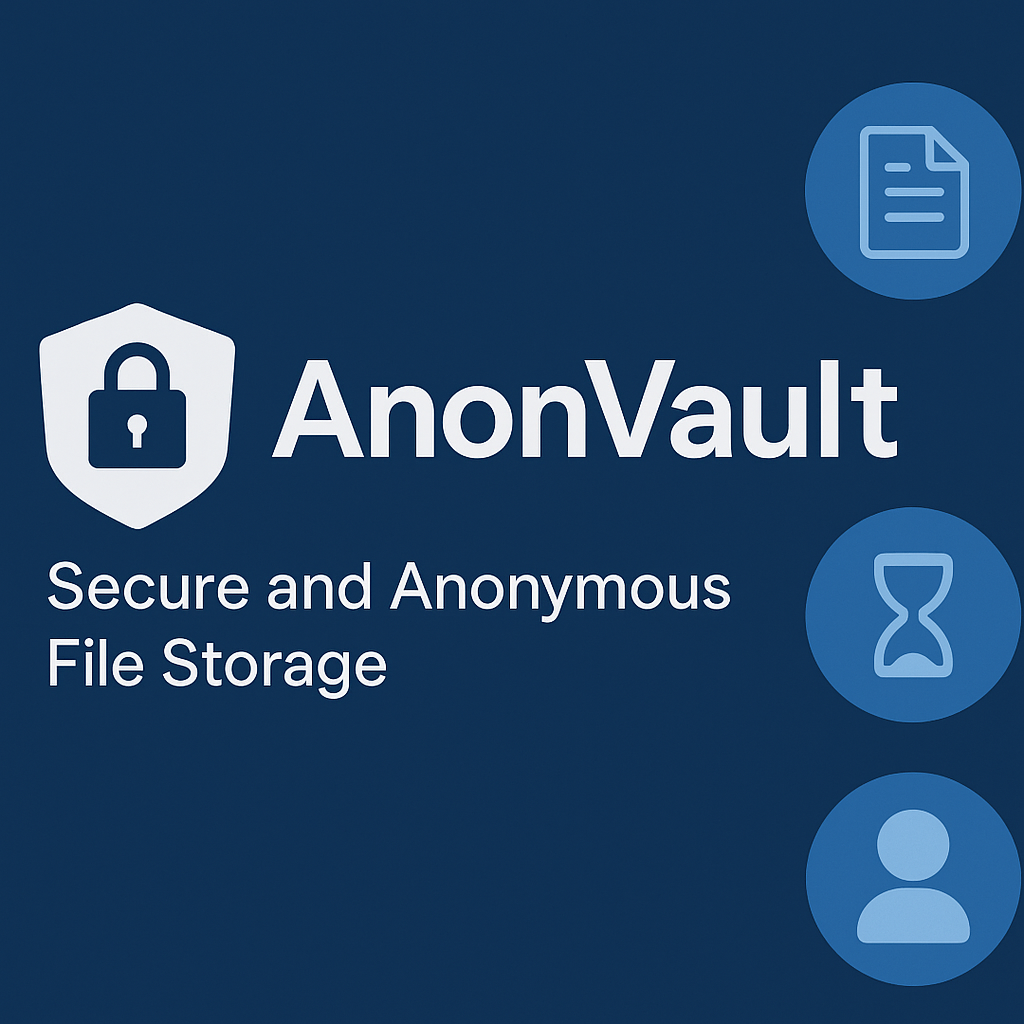AnonVault: Safe and Anonymous File Storage for Everyone
The internet today is full of data. Every photo, message, or document we share leaves a trail. Big companies and governments often collect this information. Many people are now looking for tools that give them control over their own data. Sinpcity
AnonVault is one of those tools. It is a new type of file storage that focuses on privacy, security, and anonymity. Unlike regular cloud storage, AnonVault does not ask for your name, email, or phone number. It lets you store and share files without giving away your identity.
What is AnonVault?
AnonVault is a system for saving and sharing files online with a strong focus on privacy.
It does not require a personal account.
It uses end-to-end encryption to protect files.
It keeps metadata like IP addresses or device info to a minimum.
Some versions use decentralized networks like IPFS or Tor.
In simple words, AnonVault makes sure only you and the people you choose can see your files.
Main Features of AnonVault
AnonVault offers many privacy tools that make it different from normal storage:
No Accounts You don’t need an email or phone to sign up.
Encryption Files are locked with strong codes before they leave your device.
Self-Destruct Links You can share files with links that expire after use or after a set time.
Anonymous Sharing Nobody can see who uploaded or downloaded the file.
Decentralization Some versions use peer-to-peer networks so files are not kept on one server.
Minimal Logs The system does not keep track of your IP address or activity.
How AnonVault Works
The process is simple:
You upload a file.
The file is encrypted locked on your device.
The encrypted file is stored on AnonVault servers or peer-to-peer nodes.
You get a special link or token to share.
The person you share with uses that link and the correct key to unlock the file.
Important: If the key is lost, the file is lost forever. There is no “reset password” option.
Who Can Use AnonVault?
AnonVault is useful for many groups:
Whistleblowers and Journalists They can share sensitive information without risk.
Privacy Lovers Everyday people who do not want companies tracking their data.
Students and Teams Easy way to share project files without creating accounts.
Crypto Users Store wallet keys and documents without linking them to personal identity.
Benefits of AnonVault
Here are the main advantages:
Anonymous No need to give away your personal details.
Secure Even if the server is hacked, files remain safe because they are encrypted.
Temporary Sharing Share a file for a short time only.
Cross-Border Safety Useful in countries where freedom of speech is restricted.
No Ads or Tracking Unlike free cloud services, AnonVault does not profit from your data.
Limitations and Risks
AnonVault also has some downsides:
No Recovery If you lose your encryption key, your files are gone.
Can Be Misused Anonymous systems may be used for illegal activities.
Speed Decentralized storage can be slower than traditional cloud services.
Less Support Some versions are community projects, so support may be limited.
Legal and Ethical Issues
Legal: Using AnonVault is legal in most places, but what you store may not be. For example, stolen data or harmful content is still illegal.
Ethical: Tools like this help protect human rights but can also be misused. The debate is about balancing freedom with responsibility.
AnonVault vs. Regular Cloud Storage
Here’s a simple comparison:
| Feature | AnonVault | Google Drive / Dropbox |
|---|---|---|
| Account Needed | No | Yes email, phone, billing info |
| Encryption | End-to-end, zero knowledge | Provider-side, can be accessed by them |
| Logs Kept | Very few or none | Many IP, device, activity |
| File Links | Self-destruct / temporary | Permanent until you delete |
| Password Recovery | No lose key = lose file | Yes, password reset available |
| Anonymity | High | Low |
| Speed & Support | Can be slower, less customer service | Fast, strong support |
Best Uses of AnonVault
Sending private files that should not stay online.
Sharing documents between journalists and sources.
Protecting personal data from hackers or companies.
Backing up crypto keys or sensitive papers.
Future of AnonVault
AnonVault and similar tools are expected to grow as more people care about digital privacy. Some trends we may see:
Integration with Web3 Linking with blockchain and crypto platforms.
Easier Apps Making anonymous storage as simple as using email.
AI Privacy Tools Smart assistants that protect your data without sending it to the cloud.
More Regulations Governments may try to limit anonymous tools, but demand will continue to rise.
Best Practices for Safe Use
If you plan to use AnonVault, follow these tips:
Keep Keys Safe Write them down or use a hardware wallet.
Encrypt Twice Use another encryption tool before uploading very sensitive files.
Use Expiring Links Don’t leave files available forever.
Make Backups Keep copies in safe places so you don’t lose everything.
Follow the Law Only store legal content.
Frequently Asked Questions
What is AnonVault?
AnonVault is a privacy-focused storage tool that lets you save and share files online without giving personal details. It uses end-to-end encryption and sometimes decentralized networks like IPFS or Tor.
Do I need an account to use AnonVault?
No. Most versions of AnonVault do not ask for an account, email, or phone number. You may only get a random link or token to access your files.
Is AnonVault free?
Some versions are free, while others may offer paid plans for more storage or advanced features. It depends on the provider or project.
How secure is AnonVault?
AnonVault uses strong encryption. Your files are encrypted before upload, and only someone with the right key can unlock them. Even the service cannot see your files.
What happens if I lose my key or token?
If you lose your key, you lose access to the file forever. There is no password reset or recovery option.
Can I share files with others?
Yes. You can create a share link. Many links are self-destructing they expire after one use or after a set time.
Is AnonVault legal?
Yes, AnonVault itself is legal in most countries. But storing or sharing illegal files is still against the law.
Conclusion
AnonVault is more than a storage tool. It is a statement about privacy in the digital age. By giving control back to the user, it challenges the model of big tech platforms that collect and profit from data, It is not perfect losing keys can mean losing files forever, and decentralized systems can be slower. But for people who value privacy, AnonVault offers something rare today: a way to store and share files without being watched.
As awareness of online surveillance grows, AnonVault could become a leading tool for anyone who believes privacy is a basic right.

